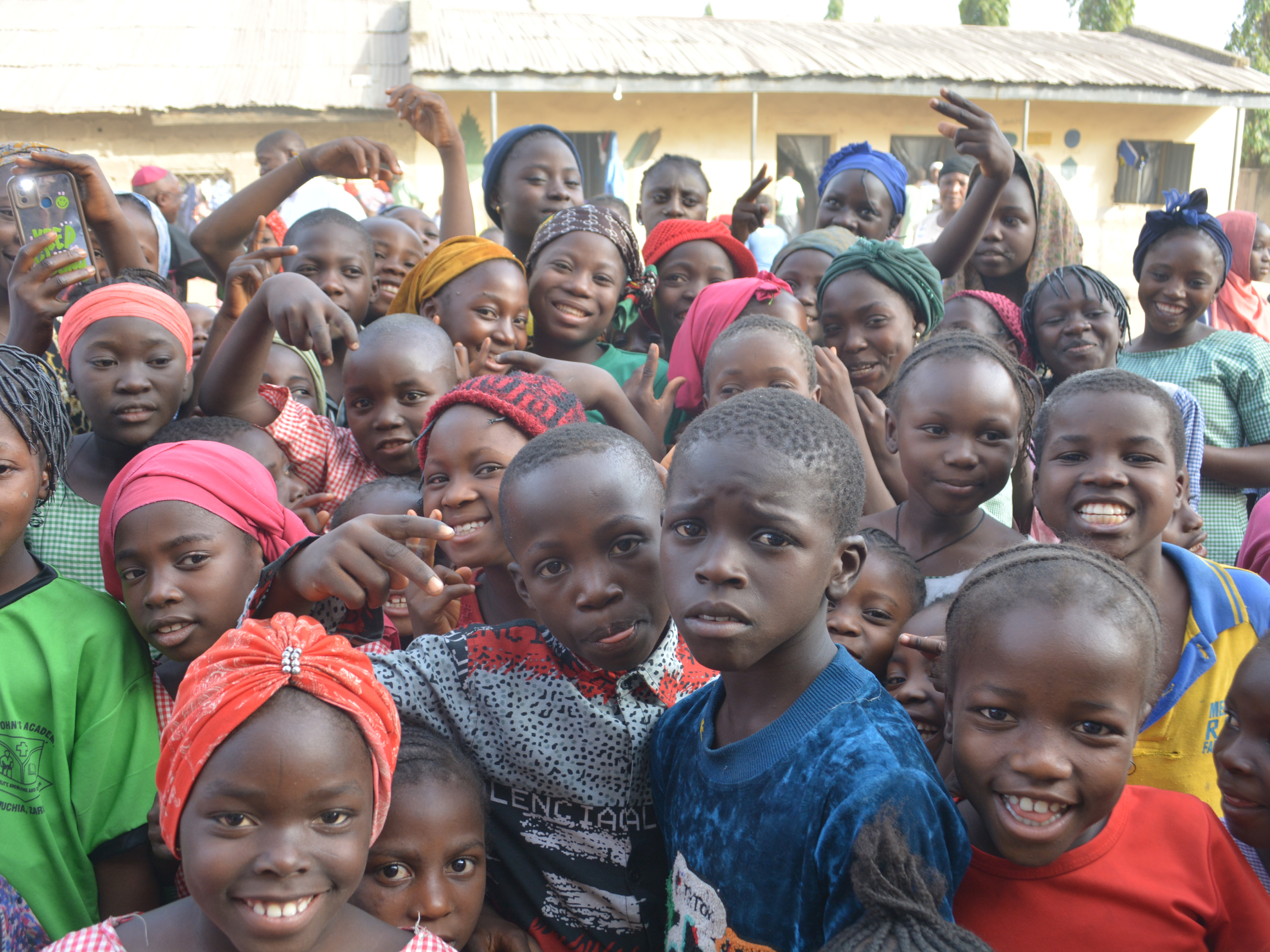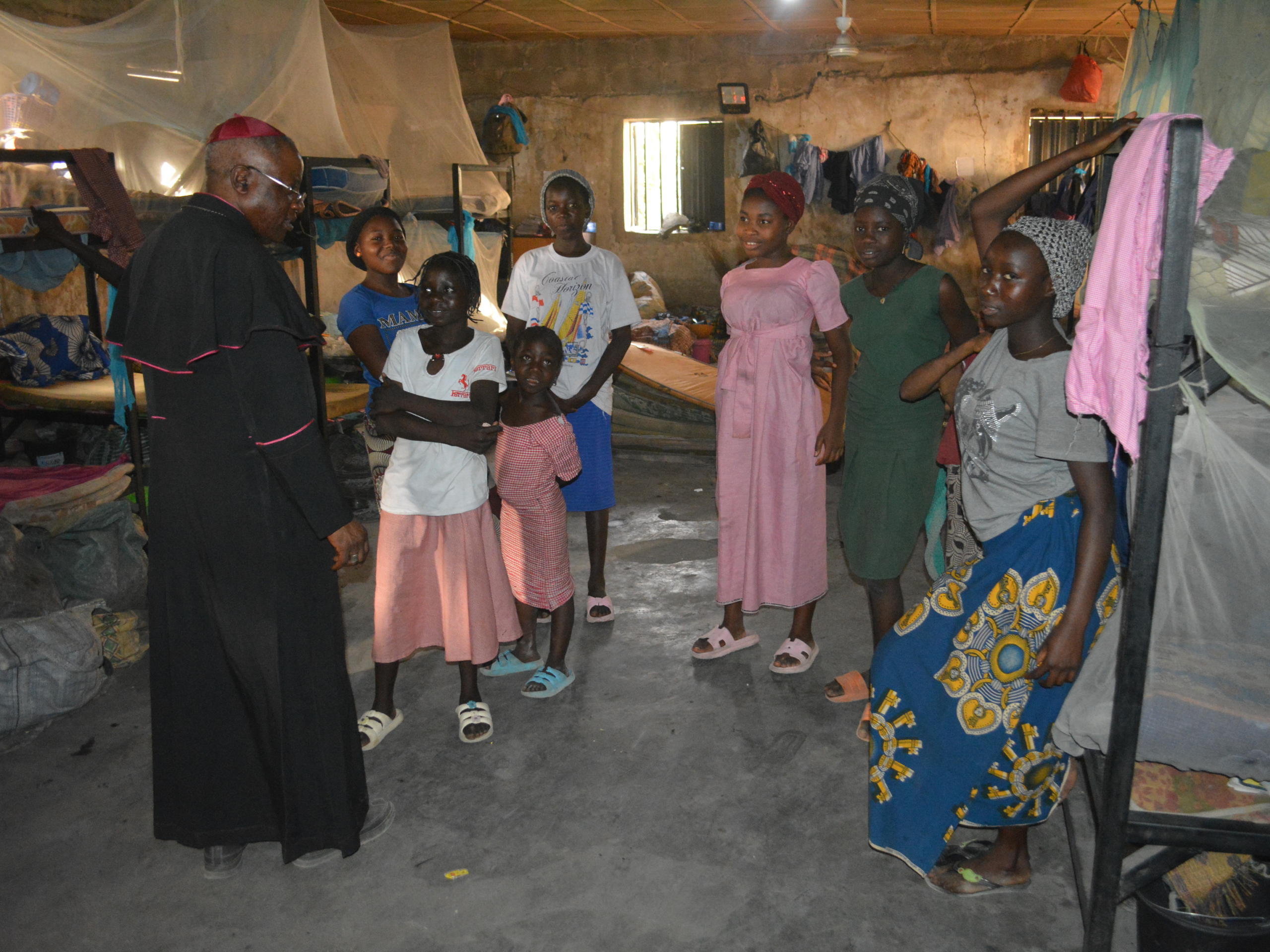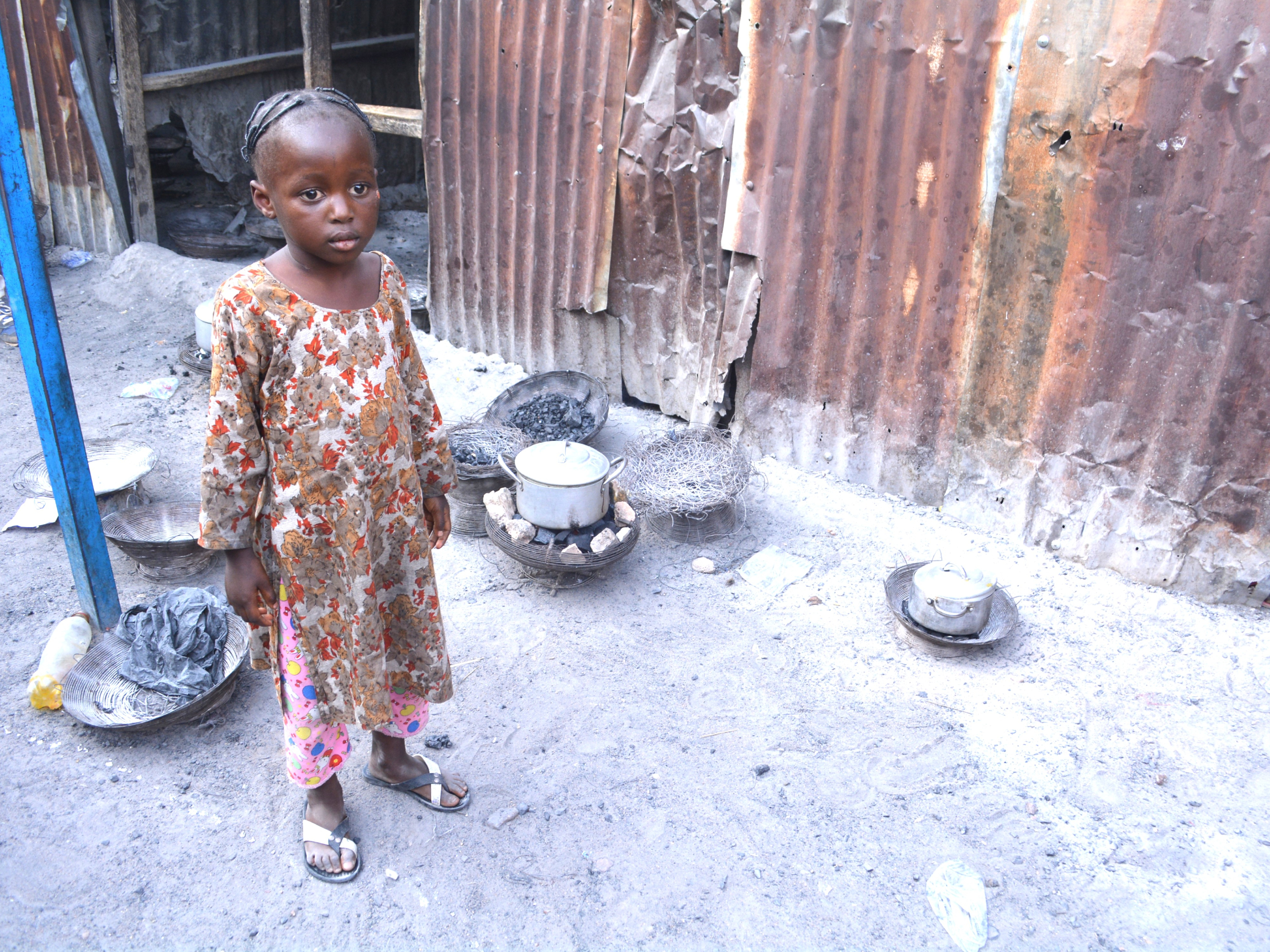ACN Nigeria Project Visit – Day 7
It was like a scene out of Dickens’s Oliver Twist. A gate opens and a sudden rush of sound as cheering and shouting children – hundreds of them – surge forward in an act of greeting. Eventually their cries of excitement subside and an announcement comes that this is a hostel for children rushed here for safety from nearby Christian villages under frequent attack from bandits, extremists and other militant groups intent on raping and pillaging the land. The children step back and there is the opportunity to take a look inside their accommodation, which consists of little more than corrugated iron sheds.

As you step inside and your eyes adjust to the near darkness in this windowless, airless space thick with the smell of body odour, you make out dirty mattresses piled up on one side revealing a dust-covered floor. Led outside again, across the courtyard, the smell all but makes you gag as you step over an open sewer. And the children, scruffily dressed, barefoot and restless, are crowding round, fascinated by my camera. Such is the commotion, I fear I am beginning to lose my senses. We are outside in Zaria, a city due south of Malumfashi.

The bishop here is Dr Habila Daboh, a close friend of ACN. I have known him for more than 20 years. I encountered him as a parishioner at St George’s Cathedral, Southwark and later at the Church of the Holy Rosary, down the road from our ACN (UK) office in Sutton, Surrey. In both places, he did pastoral work over the summer holidays. How times have changed since then. Now serving as Bishop of Zaria, Monsignor Habila was determined to take us to this hostel which he described as a situation of desperate need. The hostel adjoins the parish church of St Peter and Paul. The compound is packed with nearly 600 youngsters, aged three all the way up to their mid-20s.

For the young people, staying here next to the parish school, this is, believe it or not, a better prospect than being with their families in displacement camps. It’s a far cry from their villages, called Tama I and Tama II. Their parents come regularly to see them in the hostel. The parish priest, Father Peter Owuche, tells me that more than two-thirds of the children here are girls. This would account for the fact that the girls’ section was far more packed than the boys’. I ask why there were so many more girls? Fr Peter explained that he had helped organize the evacuation of so many of the young people and that they had to concentrate on bringing girls because they are more at risk of being kidnapped for sexual exploitation. The children were so happy to see us and their sadness was palpable as we bade our farewells. We had been with them for less than an hour but the experience is something that will stay with me forever.
